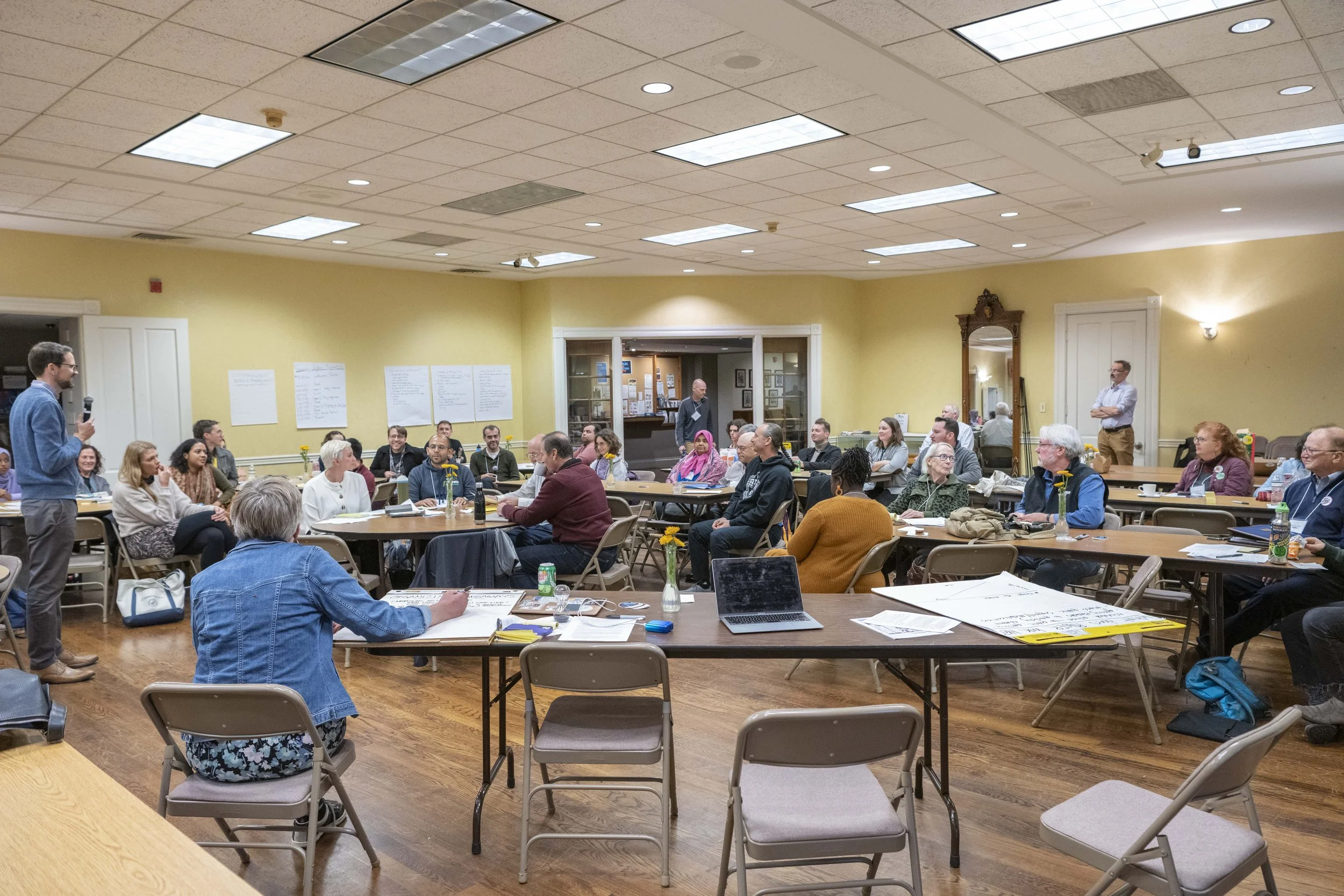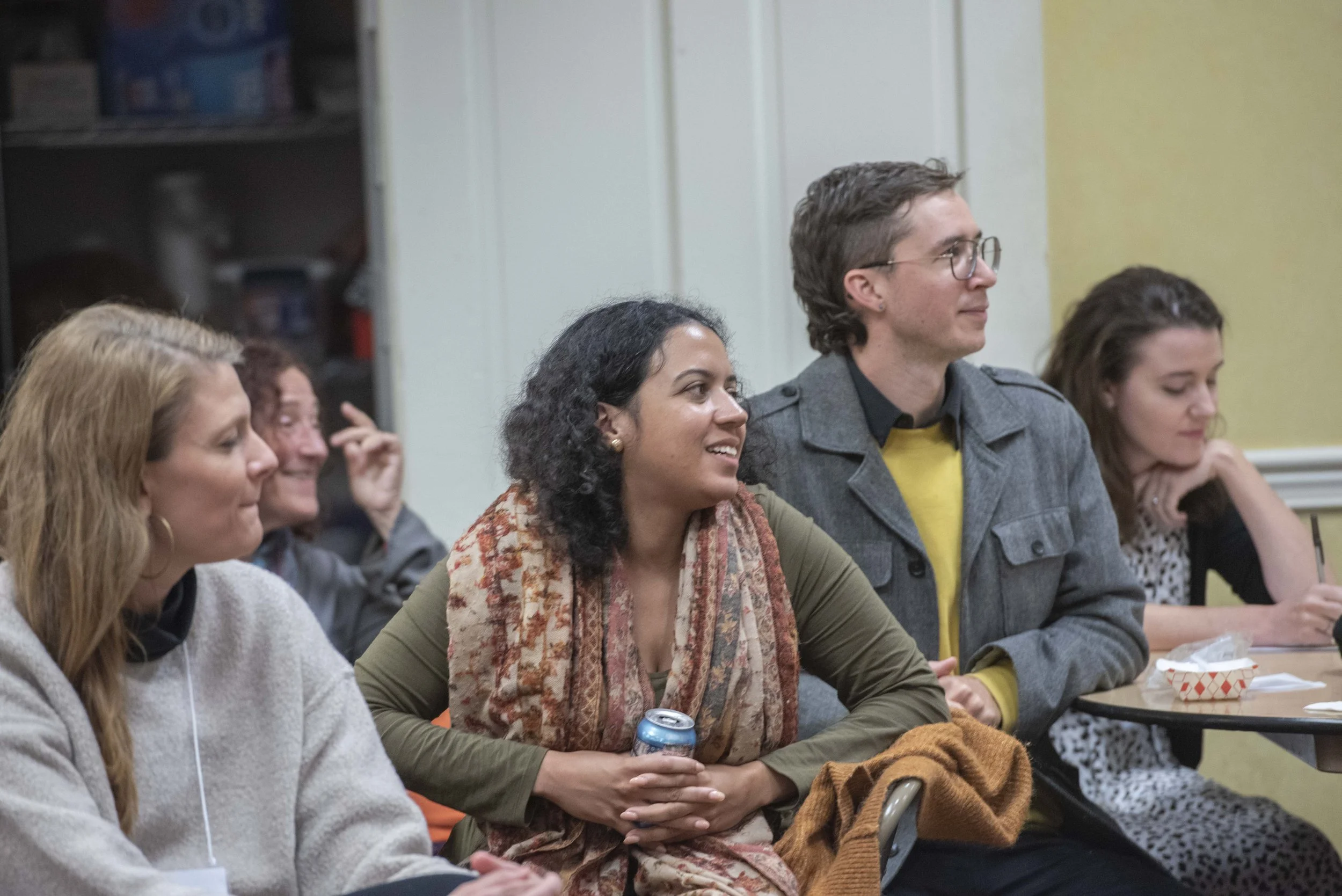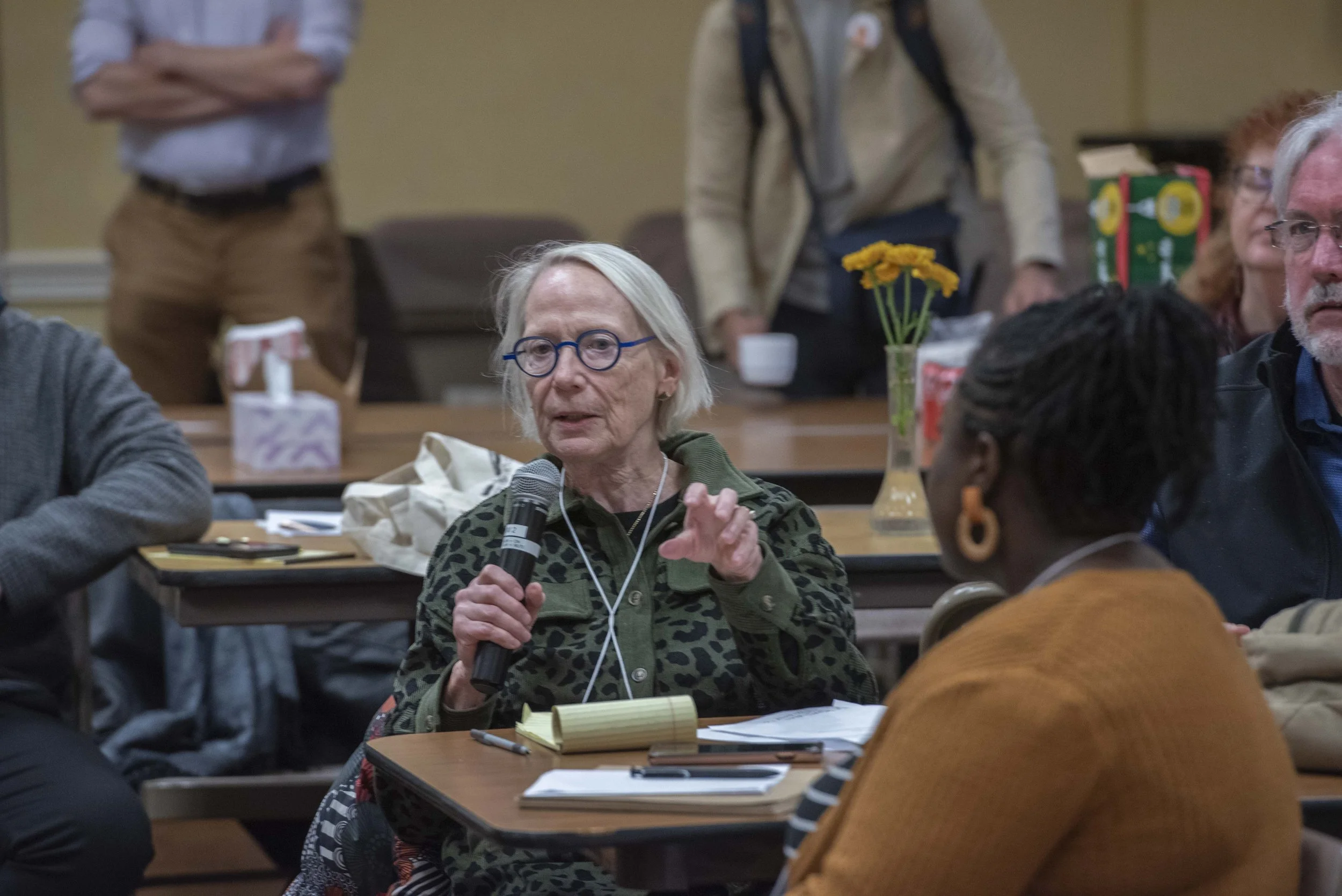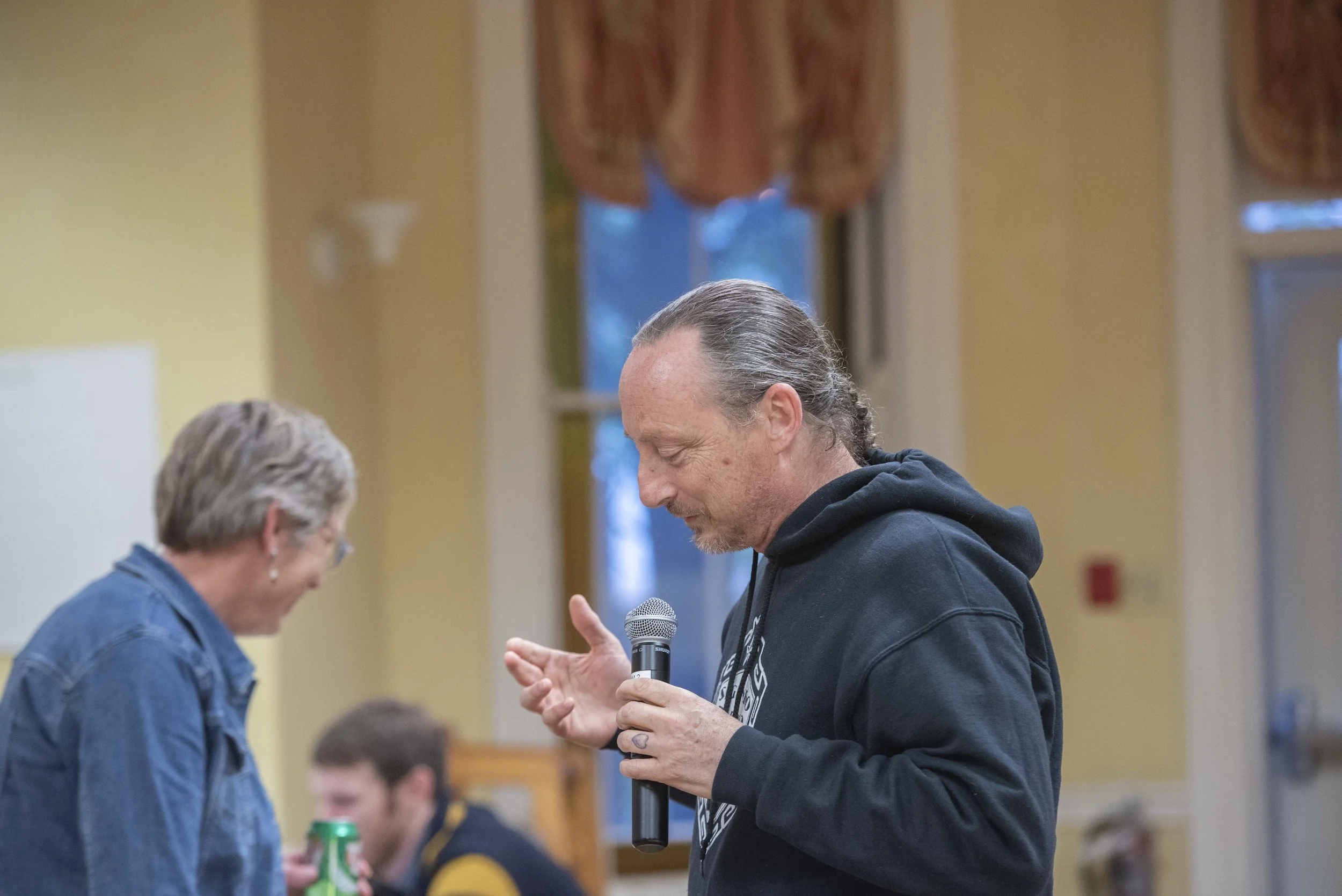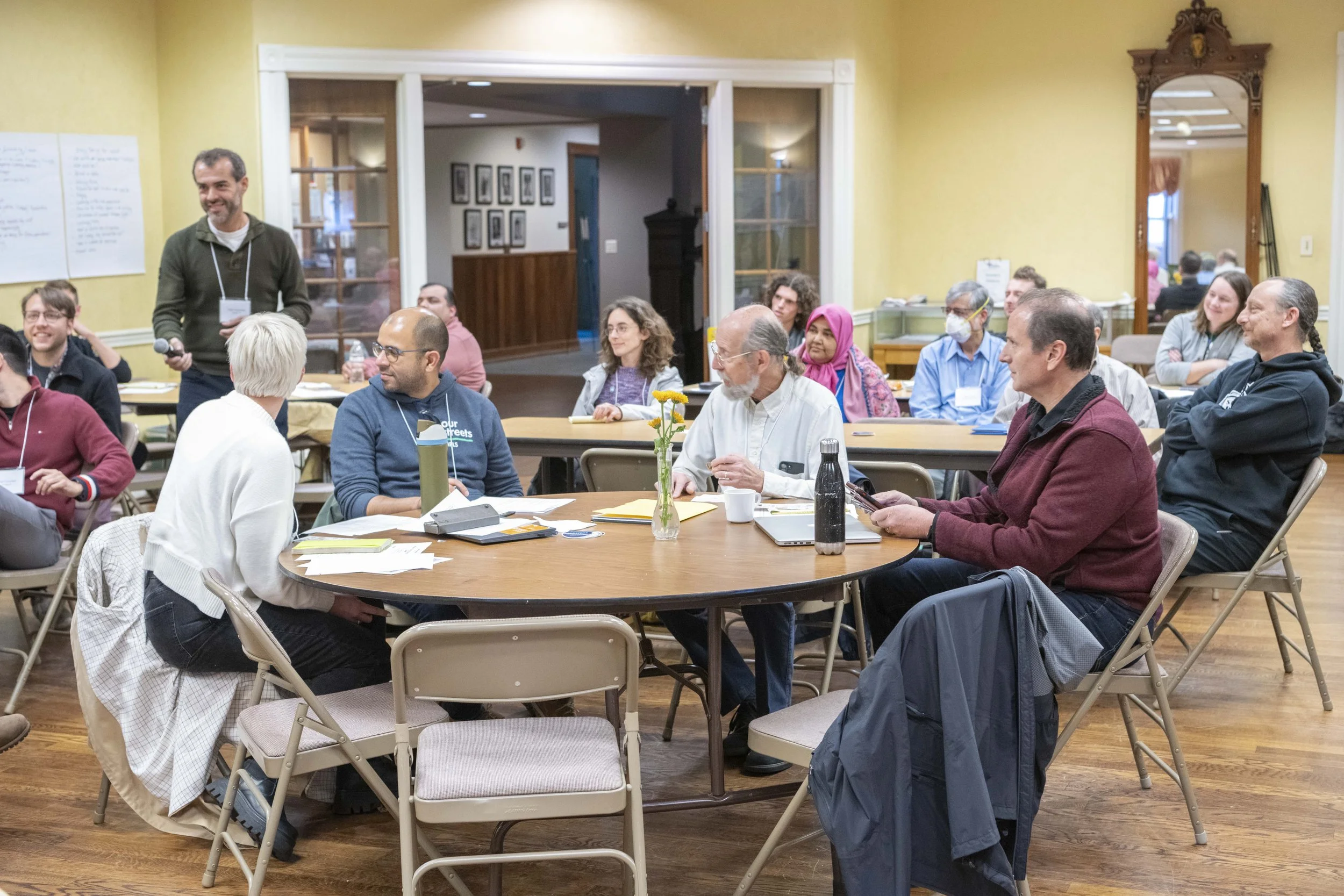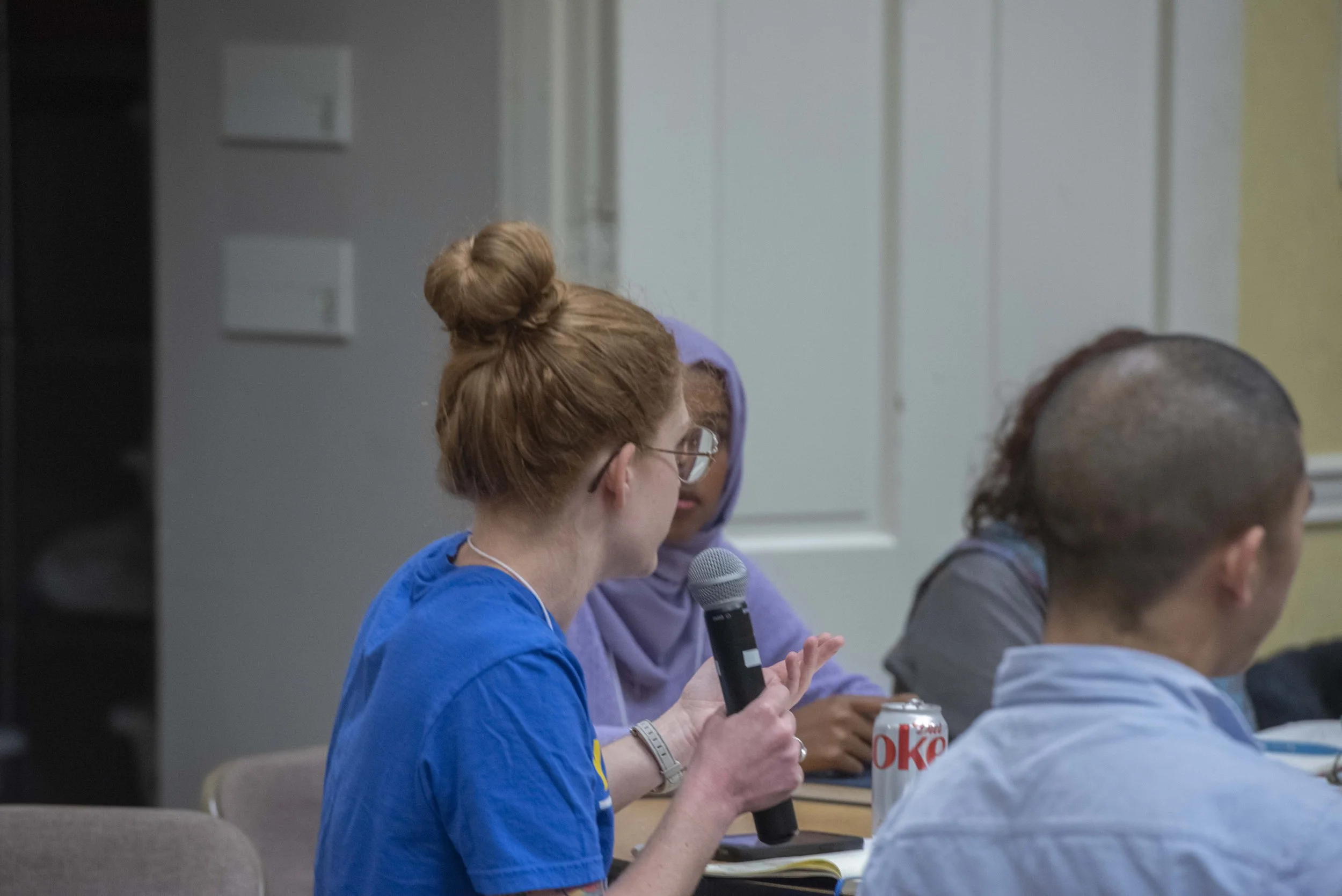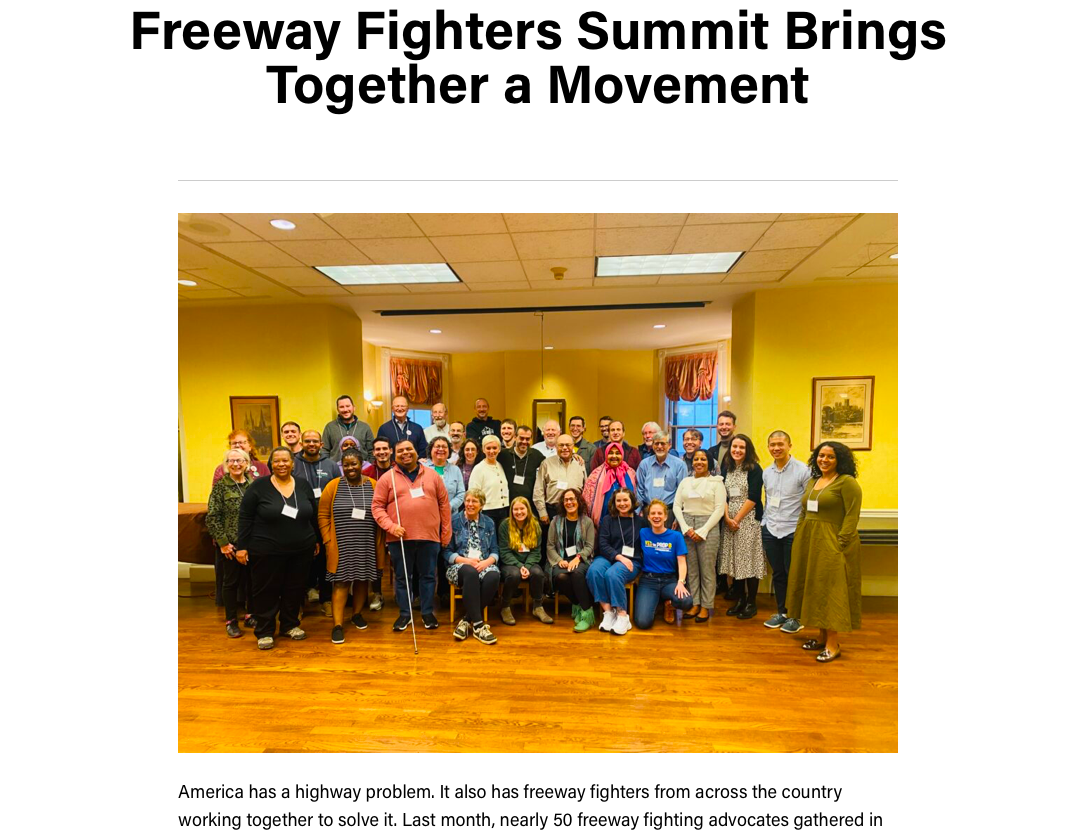Freeway Fighters Grassroots Summit Recap
Photo credit for all event portraits: Joe Simon
“This work is so difficult and so tiring. This experience [has] given us clarity for where we’re headed, how we can work together better, and I really think that [this summit] is a sign that this movement is on the ascendance: expect great things from it in the years to come.”
-Adam Greenfield, Executive Director of Rethink35
From October 19th to the 21st, almost 50 attendees from across the US gathered together in Cincinnati for the first-ever Freeway Fighters Grassroots Summit, a joint effort by America Walks and The Devou Good Foundation.
Scrappy grassroots advocates joined together to collaborate on how to fight the expansion of freeways in their backyards, working to protect and reconnect our communities. Attendees repeatedly shared how incredible and encouraging it was to gather together in person.
Adam Greenfield, Executive Director of Rethink35 in Austin shared that it felt “amazing and so inspiring to be here with other Freeway Fighters from across the country.”
“This work is so difficult and so tiring. This experience [has] given us clarity for where we’re headed, how we can work together better, and I really think that [this summit] is a sign that this movement is on the ascendance: expect great things from it in the years to come.”
Almost 50 Attendees from Across the Country
The summit saw large groups from MN and TX, including Our Streets Minneapolis, No More Freeways PDX (Portland, OR), and Stop TxDOT 1-45.
There was also notable representation from Congress for New Urbanism, Youth vs. ODOT, Climate Plan, and Bloomberg City Lab.
Thank you to Megan Kimble at Bloomberg City Lab for your press coverage!
Our Freeways Fights Are Interconnected
Summit sessions included conversations around policy, organizing, and narrative building, with attendees emphasizing how interconnected each freeway fight is and how none of our situations is unique: the common threads are key to how we fight freeways.
Hexel Colorado, attending on behalf of Dallas Neighbors for Housing and Replace I-345, shared,
“There’s a highway that cuts through the heart of Dallas: Highway 345. This interstate cut through neighborhoods and paved over communities that were historically Black and brown and [communities that were] really the cultural heart of Dallas that made it the big city that it is today. And so right now, this highway is 50 years old.
Something has to be done because it’s crumbling and costs millions and millions of dollars to maintain. Tx-DOT, Texas Dept. of Transportation, wants to replace it [basically the same], but we want to see it removed entirely and replaced with a mixed-use walkable neighborhood. And this isn’t really a new vision—this is just restoring what was originally there and making the city whole again.”
“One of the myths that this experience [gathering with other Freeway Fighters] has dispelled for me is [that] in Dallas we like to think that we’re unique. We cannot get rid of this highway or we cannot narrow this highway because Dallas is Dallas: we have a very unique car culture, and I’ve realized that these problems and these assumptions are not unique. The solutions to solving them are not unique…while every city is unique, the fundamental challenges are not unique.
Seeing all of these faces, my desire and my passion is to see a better city for myself, for my family, and for my friends. And that’s not unique either. Seeing all of these people wanting to fight freeways in their own communities makes me feel like I’m a part of that larger family.”
In closing, Colorado shared, “Just as the decisions made in the past have shaped the car-dependence that we have in the present, the decisions we make today can reshape how we move tomorrow."
Fellow Texan Sito Negron, member of the El Paso Streets Coalition, policy aide, and President of the Sunset Heights Neighborhood Improvement Association also talked about the interconnectedness of Freeway Fighters:
“There’s nothing like experiencing something firsthand; for example hearing about Cincinnati is different than actually being here and seeing it and seeing some of the issues that Cincinnati is facing. Similarly, being in a room with other people who have similar fights helps make the connections.
For example, I-10 that runs through El Paso is the same I-10 that runs through New Orleans. I-35 in Austin is the same I-35 that goes all the way up to Minnesota, and so on."
The Potential for Our Communities is Huge
Nailah Popeharden, Executive Director of Climate Plan, shared, “I’m passionate about freeway fighting because I come from South Sacramento, a community that is strapped [of] resources. When I think about the potential we have when we start tearing down freeways and what that can do for communities like the one that I grew up in—that opportunity is so huge. The Green Space opportunity. The connectivity opportunity. The small business opportunity.
We’re missing out on so much by putting these big racist monuments [of freeways] up that are polluting communities, displacing communities...it just makes no sense to me why we continue to move in this direction.”
Popeharden continued by sharing that in the midst of the frustrations of every DOT across the country or across the state finding, “their own tricky, snake-y ways” to push these policies forward, it was exciting to gather with other Freeway Fighters.
“It’s really exciting to know that there are people across the country who are just as passionate, if not more passionate; just as knowledgeable, if not more knowledgeable than me on this. And with this conference specifically, the beauty is it feels really accessible. So there’s folks that have just started in this fight and folks that have been doing it for years. And it really doesn’t have to be over-complicated, there is room for everybody in this movement.”
Carly Ellefsen, Communication Manager of Our Streets Minneapolis shared,
“[What attracts me the most] to transportation is it feels like a tool that can solve a lot of issues. It’s intersectional. When we address issues at the local, state, and national level, we’re able to address the issues of climate change, we’re able to improve economic vitality, we can work on reparative justice and racial equity; we can improve third space, which in turn can help with loneliness and mental health issues and improve our communities.”
Changing the Way We Fight Freeways
When asked how it felt to gather in Cincinnati with other Freeway Fighters, Molly Cook with Stop TxDOT I-45 shared, “I can’t even say yet how it feels, [but] it’s re-radicalizing, you feel deeply rooted in something.”
Cook continued, “You go into these rooms and you get gaslit by these powerful organizations, and you have to gather back together and say, ‘No, You’re right. It’s wrong to do this.’ I learned a ton, so now I get to go home and put all of that into practice…I’m just so excited.”
“Coming here and meeting all of these people–and not just meeting, and not just learning, but really connecting and getting to know people and seeing the fights that are going on in other places, it’s more than inspiring. It’s–it’ll change me and it’ll change the way that I fight freeways for the rest of my life.”
A Manifesto, Solidarity, & the Power of Imagination
Freeway Fighter Summit Attendees also workshopped a manifesto, or call to action, that has just been released. We’re energized and excited to see how this historic gathering has ripple effects in each of our communities.
And thanks to YOU, our generous donors, we met our 10k goal to support attendees. Thank you for your solidarity and investment as we continue to collectively develop strategies that demand our federal, state, and local governments end freeway policies that damage and divide our communities.
We’re continuing to imagine what’s possible.
Community leaders, sign the Freeway Fighters Network letter
“The Freeway Fighters Network is calling on elected leaders across the country to adopt a moratorium on expanding highways and instead prioritize investments in infrastructure that puts communities and people first. An overwhelming proportion of federal infrastructure dollars continue to flow to transportation projects that damage both communities and environment and set us back on achieving climate goals. It’s time to end these destructive, unsustainable practices and set a responsible course toward a cleaner and more equitable future.”
We need your support. The Freeway Fighters Network is collecting organizational signatures for the letter through January 31st, 2024.
Sign the letter to Support Communities, Not Highways here.
Contact Ben Crowther at America Walks with any questions and sign up at the Freeway Fighters Network website below to stay up to date.
Press and Resources:
Fighters Summit Signals a New Wave of US Highway Revolts -Bloomberg City Lab
America Walks Recap, Freeway Fighters Summit Brings Together A Movement
Get Connected: Freeway Fighters Network
“The Freeway Fighters Network is a coalition of community advocates united by our belief in accessible, safe, sustainable, and healthy communities for all.”


